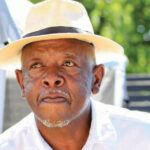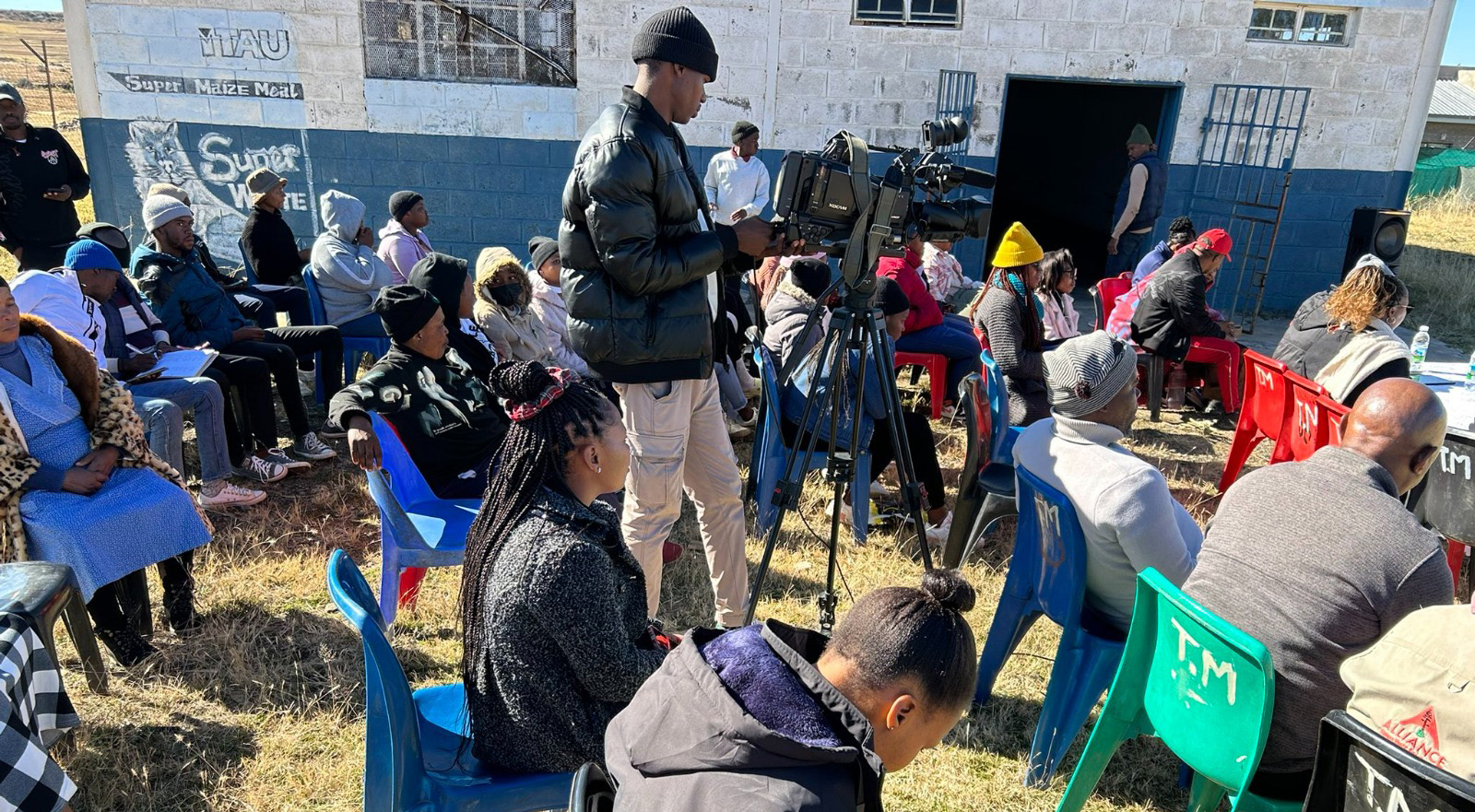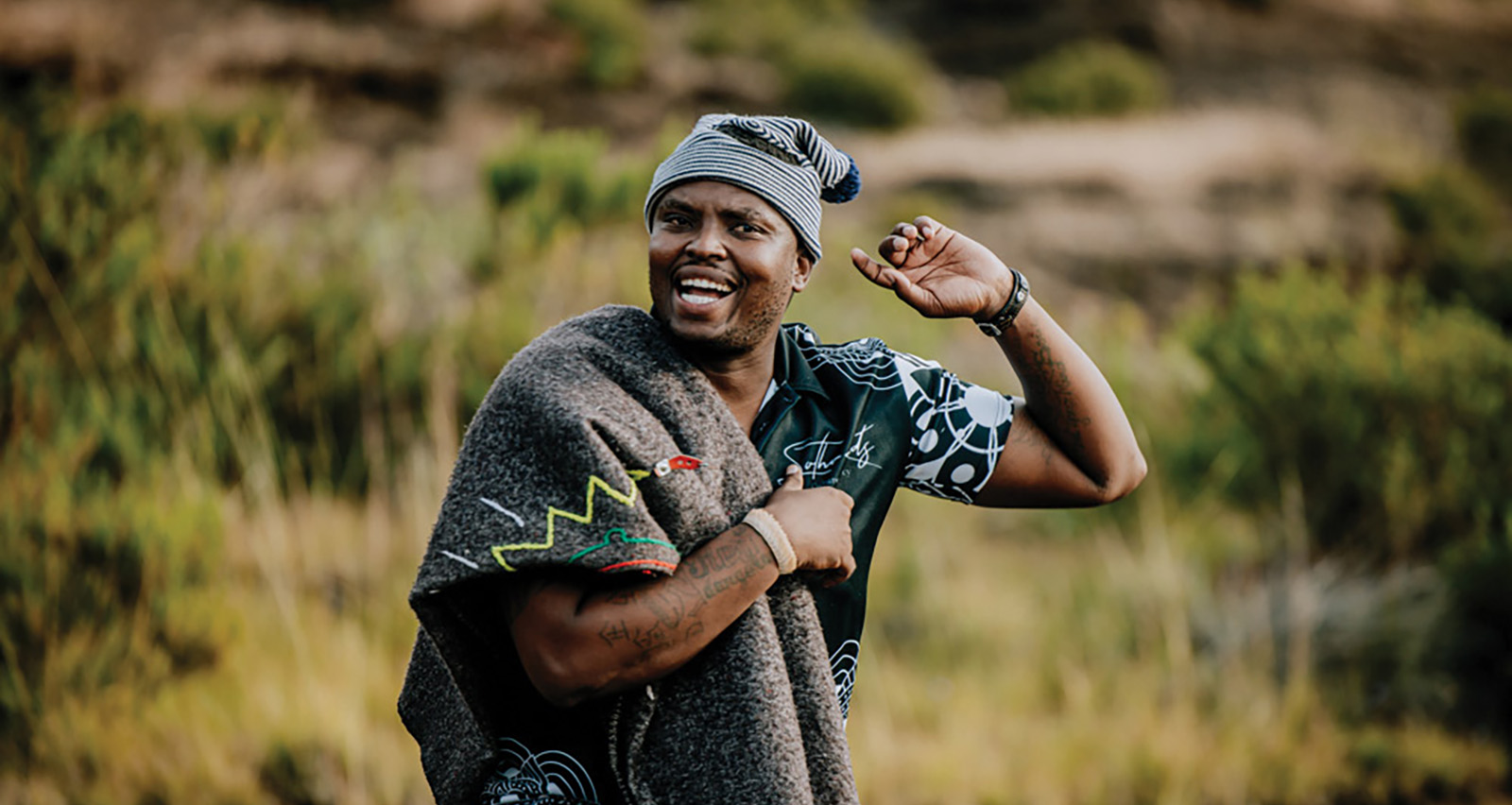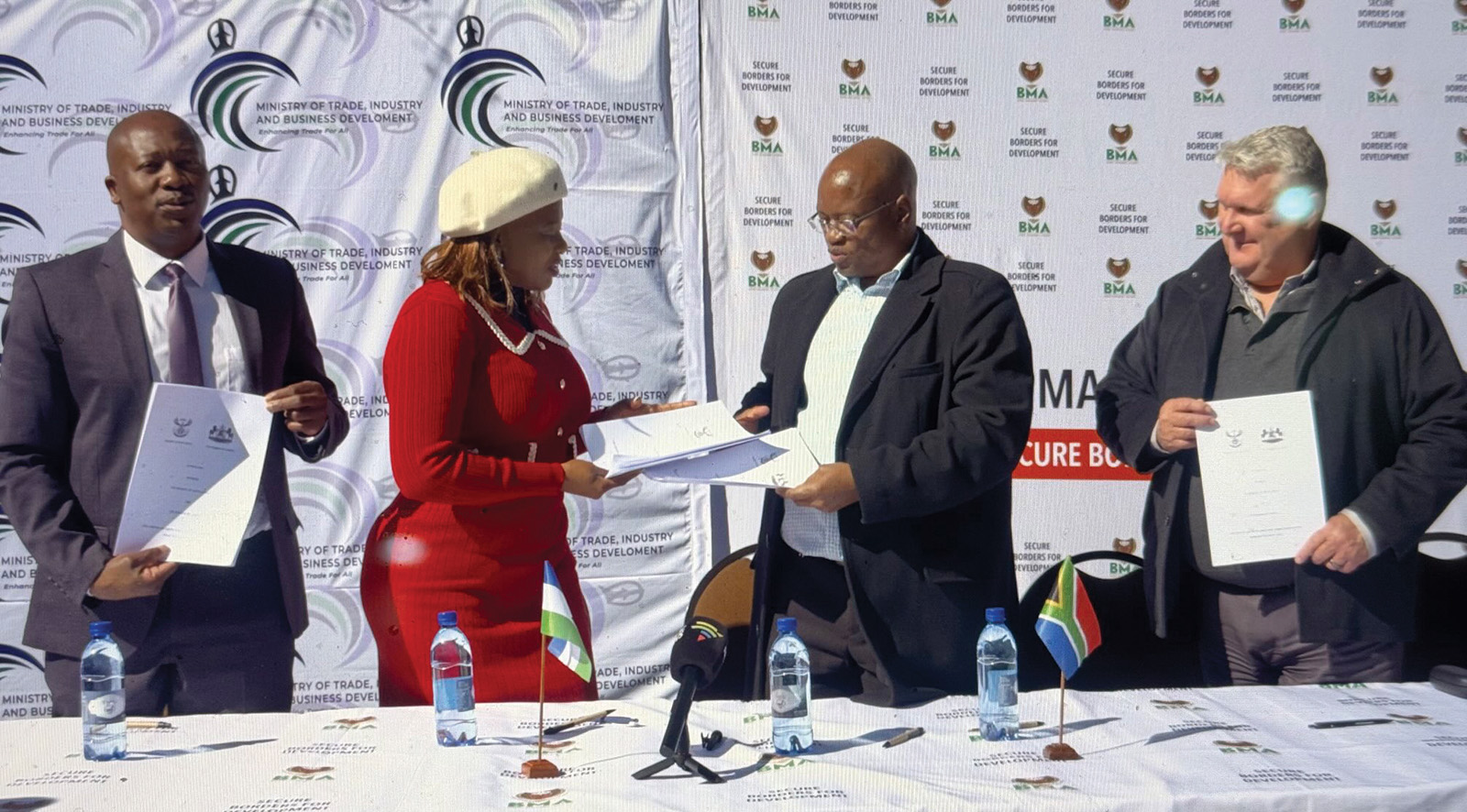DMA boss pledges to ensure effective use of funds

SHARE THIS PAGE!
Lesotho continues to grapple with the devastating impacts of climate change and natural disasters. The newly-appointed Chief Executive Officer of the Disaster Management Authority (DMA), Reatile Elias, says the country has embarked on spirited efforts to mitigate risks and build resilience while ensuring funds are optimally utilised.
In this exclusive interview with theReporter’s ‘Mantšali Phakoana, Elias also shares his vision for disaster management in Lesotho, his plans to coordinate with local and international stakeholders, and his strategies for strengthening the country’s disaster preparedness and response.
What is the biggest challenge for disaster management in Lesotho?
In my view, the biggest challenge facing disaster management in Lesotho and pretty much any area of socio-economic development for our country is limited financial and infrastructural resources.
Disaster management, in its five stages namely prevention, mitigation, preparedness, response and recovery require significant investment of financial resources in each of those stages.
In the past, very little investments have been made on the prevention and preparedness stages of disaster management, with focus always being exclusively on response and recovery. This has meant that as a country, we have not been able to address the most critical stages of disaster management in terms to resources allocation.
Another big challenge is that the current legal framework (DMA Act, 1997) is outdated and as such, does not enable the Authority to function effectively and independently, given the mandate assigned to it. For instance, the DMA was set up to be a coordinating, rather than an implementing agency.
To this end, what you see currently is the DMA being in the execution of disaster management activities whereas that should not really be the case. We should instead, have local government structures, NGOs, civil society, and community structures being the ones doing the actual implementation of such activities.
Efforts are however, at an advanced stage to amend the legislation and I am optimistic that before the end of this year, the Bill will be passed and this means that the ground will now have been laid for the DMA to be more focused on its coordination role.
How do you plan to coordinate with local and international stakeholders to better mitigate disaster risks?
Coordination is our main role and mandate as the DMA when it comes to disaster management and risk reduction. This therefore, says that as the chief executive of the authority, my main priority is Stakeholder Relations Management, with the main purpose being to enhance, strengthen, and increase the level of collaboration, cooperation, interaction and information sharing between ourselves and our key partners and stakeholders.
This will be for both local and international as well as public, private and civil society sectors. The strategy forms a strong basis and catalyst for more meaningful, efficient and effective disaster management efforts in our country.
The country has experienced several natural disasters in recent years, including floods and droughts. What strategies do you plan to put in place to ensure that future disasters are handled more effectively?
Mobilisation, pooling and deployment of resources will be one of the key strategies I will be using in order to achieve the effectiveness and efficiency you are talking about.
I have already alluded to resource limitations as one of Lesotho’s biggest challenges. Therefore, this means that in everything that we do, we need to ensure that there is no duplication of efforts in terms of our resource deployment so that we can always achieve more with less.
This also goes back to what I mentioned earlier, that all my strategies will draw from, and be informed by, our Stakeholder Relations Management.
Can you share with us any new initiatives or policies you are planning to implement in order to improve disaster preparedness and response?
Remember as I mentioned, our role as the DMA is to coordinate disaster management in its entirety. This means that before I could even start thinking of new initiatives or policies, I will first need to engage broadly and extensively with all frontline implementing agencies, institutions, key stakeholders and partners in order to establish and understand comprehensively, how their policies and initiatives on disaster handling have evolved overtime and what the future thinking is. It is then that we can be able to jointly harmonise our action plans going forward.
Perhaps in three months’ time you can then ask me about what new direction we intend to take as the DMA.
The government has been criticised for its ‘late’ response to past disasters and corruption. How will you ensure that the DMA is better prepared and equipped to handle future disasters as well as using funds effectively?
Constructive criticism is very helpful and useful in shaping and informing institutional decision making and planning on all social issues. In order to ensure that the DMA becomes an efficient institution, I will need to make a comprehensive analysis of all the lessons learnt, the pitfalls and inefficiencies experienced in the past and use those as a guiding beacon in terms of what to avoid and what not to do in future.
Efficiency and success in any of our future endeavours will be achieved through close collaboration with key stakeholders at all times. This will include planning together as well as holding each other accountable every step of the way.
Developing and harmonising our Standard Operating Processes (SOPs), Guidelines, Operating Systems and Tools, as well as Policies and Procedures will be key to reducing and ultimately eliminating any corruption risks that have plagued disaster management programmes and initiatives in the past.
What role do you envisage for community involvement in disaster management, and how will you engage with local communities to build resilience?
In view of the fact that most disasters occur within our communities at large, it goes without saying that it is thus my priority to build, capacitate, empower and sustain community-based structures to enable them to comprehensively manage disaster-related programmes at that level.
In order to build resilience at community levels therefore, we need to urgently address resource deficiencies that currently exist and work towards narrowing and reducing that gap.
Climate change is becoming an increasingly urgent issue for disaster management. How is the DMA integrating climate change adaptation into its disaster management plans?
Climate change is not only an urgent issue for the DMA. It is actually the new norm for all the social, economic, legal, political and of course environmental sectors. All key players in these sectors have to integrate climate change adaptation strategies in their plans.
In fact, if you look at the Lesotho NSDP II (2023/24–2027/28) Strategic Focus Area #5: Cross Cutting Theme; Outcome #5: Environment and Climate Change; Strategic Objective 1 is to: “Strengthen climate risk management Resilience because Lesotho is experiencing devastating impacts of climate change and extreme weather conditions.”
As CE of the DMA, I will be driving, leading and coordinating this strategic objective across all sectors.
Can you share with us any plans for strengthening the DMA’s Early Warning Systems and response capabilities?
We already at the DMA, have a unit responsible for Early Warning Systems (EWS). We have benefited from several technical capacity building programmes facilitated by several of our international partners through training programmes. These have covered a wide range of subject areas such as disaster knowledge, detection, warning dissemination, preparedness and response. These collaborative initiatives will continue into the future, because as I have said, climate change is now our new norm.
As we wrap up, could you share your background and experiences that have prepared you for this role?
My academic training is in the areas of Sociology, Demography and Human Resources. All these three areas dwell significantly and in-depth, into how societies, whether at community, national or international levels are affected and impacted by social, economic, environmental, cultural, legal and political and dynamics in their day-to-day lives. This will help me to comprehend broad disaster management issues quite well.
In terms of professional work experience, I have served in several projects; human resources; public relations; as well as customer service management roles in various sectors (public, private, NGO, civil society), both here in Lesotho and abroad. These experiences have broadened my professional outlook and perspective towards multi-sector matters meaningfully.
I was significantly involved in the early stages of the national efforts to combat the Covid-19 pandemic in terms of putting together, manpower resources, systems, policies and procedures. All these experiences will certainly come in handy as I embark on this huge but exciting responsibility to lead the country’s disaster and risk management strategy.
I take this accountability very seriously and I realise that I will need to have and exercise a great deal of patience, dedication, commitment and humility at all times.

Communities empowered to protect environment
11 days ago
Alliance boosts MCC fleet
11 days ago
Young people discuss economic future at Taung
12 days ago
CityzeenLs nears 1 million YouTube views
13 days ago
Econet commits over M1million to Lecholi event
13 days ago

New border plan to advance regional trade
16 days ago
Foul language lands man in court
16 days ago
Youth demand action on unemployment
16 days ago
Ex-ministers threaten to sue govt
16 days ago